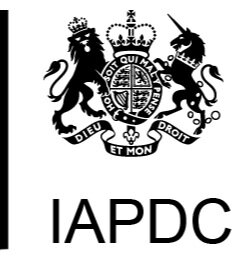Lords Oral Question: Lord Harris of Haringey
On Thursday 16 July 2020, Lord Harris of Haringey will be asking Her Majesty’s Government what progress has been made towards the implementation of the recommendations in the report by the Independent Advisory Panel on Deaths in Custody 'Keep Talking, Stay Safe': A Rapid Review of Prisoners' Experience under COVID-19, published on 31 May 2020. The Rt Hon Lord Keen of Elie QC will respond representing the Ministry of Justice.
The report, which can be read here, provides a unique insight into the experiences of those detained in prisons during the Covid-19 crisis. Drawing on radio messages from over 200 prisoners across 55 prisons, almost half the prison estate, the IAPDC presents voices, usually unheard, and views, usually unsought, of people in prison in unprecedented times. Through a partnership with National Prison Radio, over a four week period the IAP received and reviewed 223 prisoner phone messages from across 55 prisons, with the findings leading to ten recommendations:
Ensure that people are given clear, accurate and up to date information in accessible forms that all prisoners understand, and that this is ongoing. A consistent approach should be taken and commitments given, whether by Ministers or prison officers, should be honoured. If any changes need to be made, they should be accompanied by clear explanations.
Streamline and expedite the early release scheme to create the headroom needed to take active steps to protect life. Given numbers of medically vulnerable people who need to be shielded, overhaul the process of release on compassionate grounds and review and halt the misuse of prison custody as a place of safety.
Build on the success of the keyworker scheme to keep people safe. Maintain prisoner:keyworker ratios of 6:1 and preserve time for one-to-one meetings. Prisoners need key people who they can turn to and trust. Staff need to know their prisoners. Good professional relationships and mutual respect between staff and prisoners protect lives.
Improve support systems for staff, introduce regular, professional supervision and properly embed the lessons learned from independent scrutiny. An effective complaints system, investigation and disciplinary process must remain in place. Together this would reinforce positive approaches, call into question negative attitudes and deal with poor or abusive treatment.
Protect prisoners and staff. Ensure that there is a proper supply of PPE for prison staff, environments are clean and that prisoners are supplied with PPE during essential work, hospital visits etc. Improve hygiene with sufficient cleaning materials to keep cells and wings clean, and soap/hand sanitiser for prisoners.
Meet basic needs, including: exercise and time in the fresh air; nutritious food; clean clothes and a range of in-cell activities to accommodate differing abilities, in a consistent manner across the prison estate.
Increase prisoner engagement and peer support. People want to be listened to and involved. Work with the Samaritans to expand the Listener scheme, use innovative means of communication and establish Listeners as essential workers in all establishments.
Maintain safer custody as a priority, respond to mental health and wellbeing needs and support people who are particularly vulnerable (such as those with autism and/or learning disabilities/difficulties, people who are mentally ill and those with dementia).
Improve family contact. Extend scope and credit for phone, video and email with family and friends and official prison visitors. Ensure family helplines are working properly across the prison estate.
Introduce bereavement support and counselling for prisoners and staff. Loved ones have died through Covid-19. Untimely loss and bereavement already characterises the lives of many people in prison.
The answer will given shortly after midday and can be viewed on Parliament TV.
